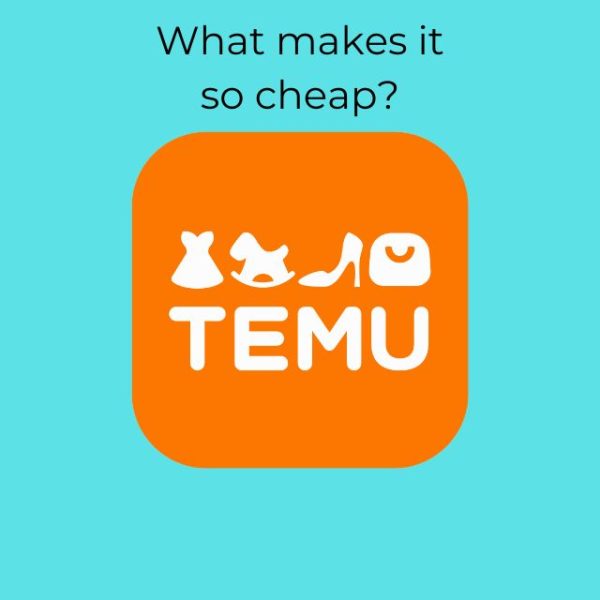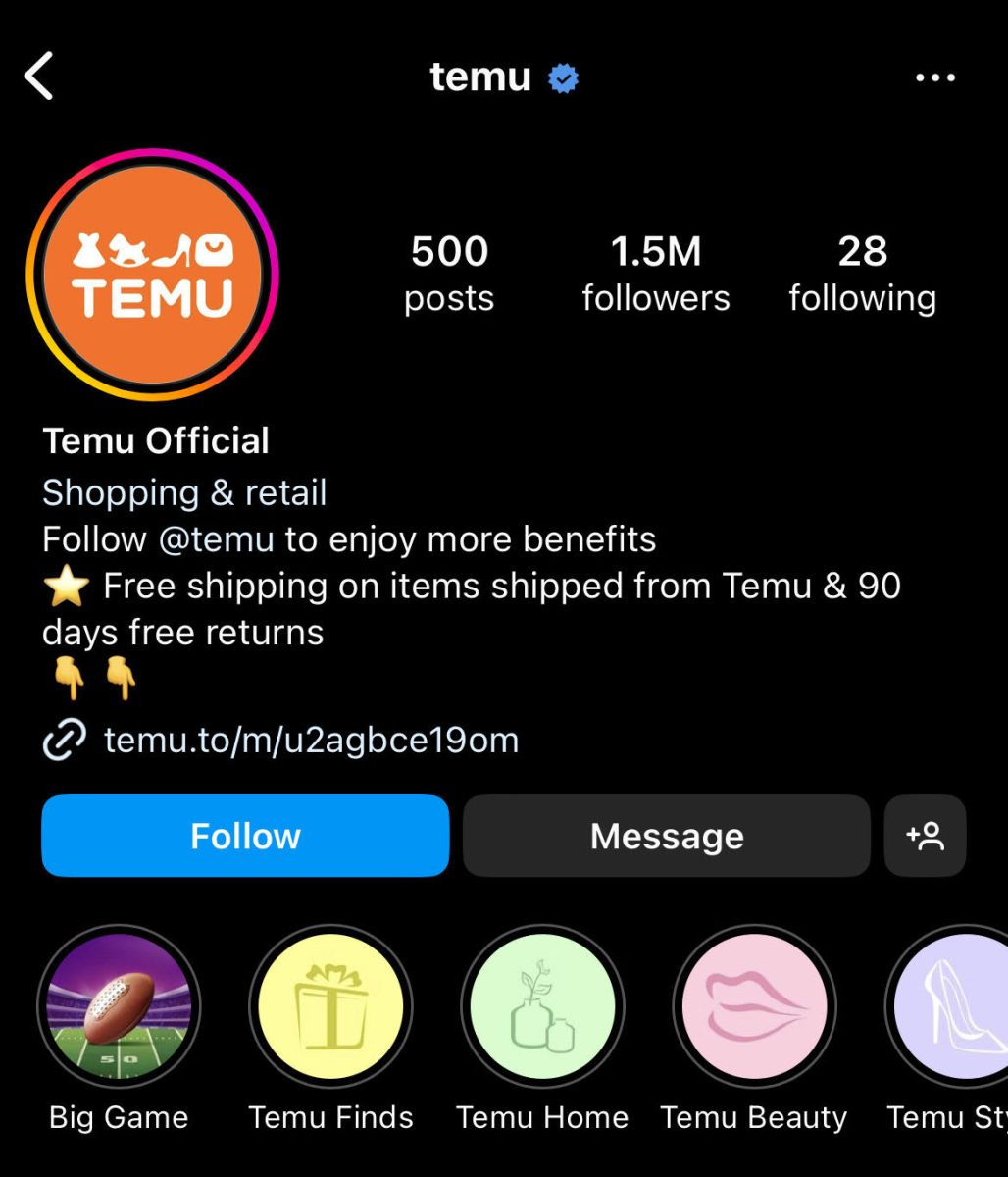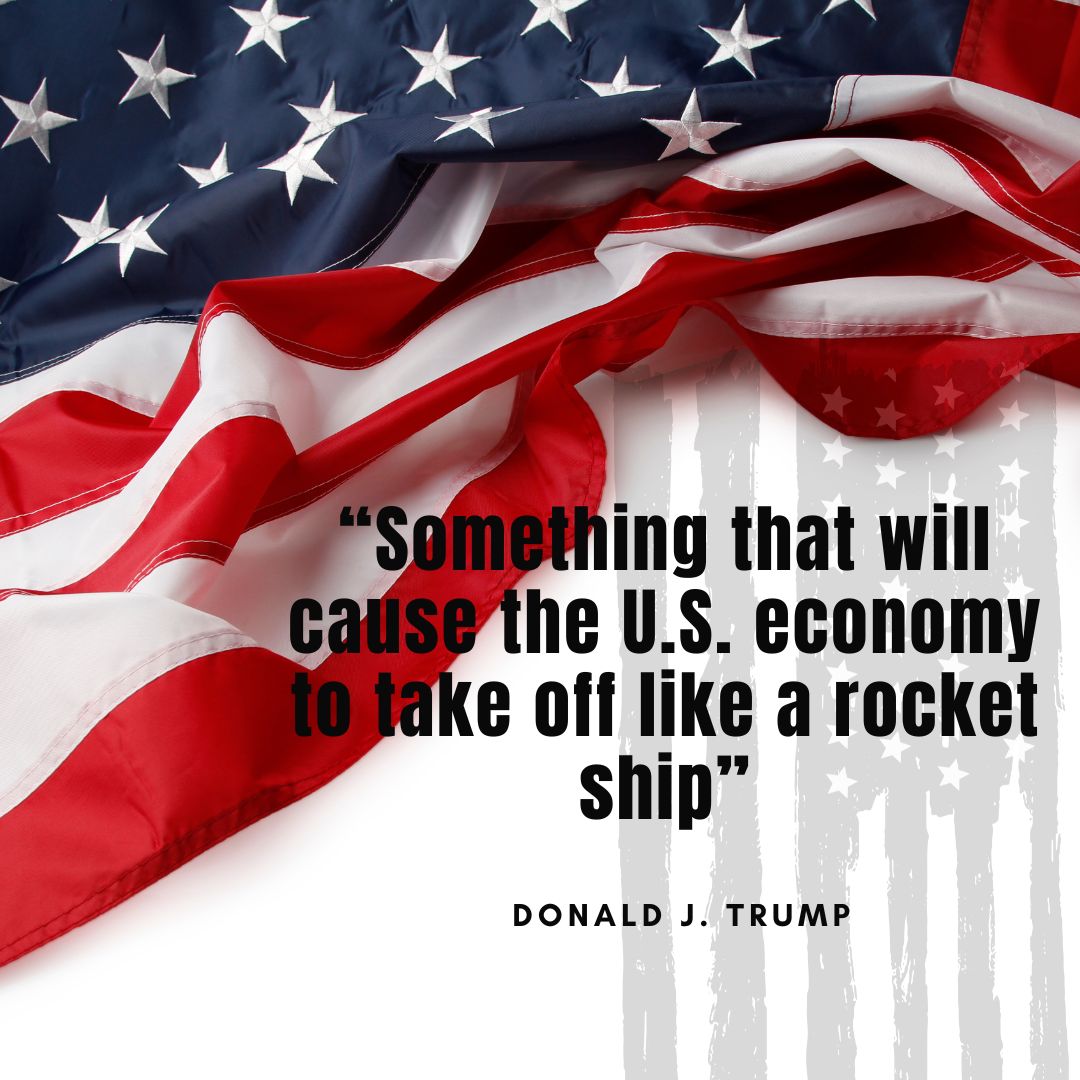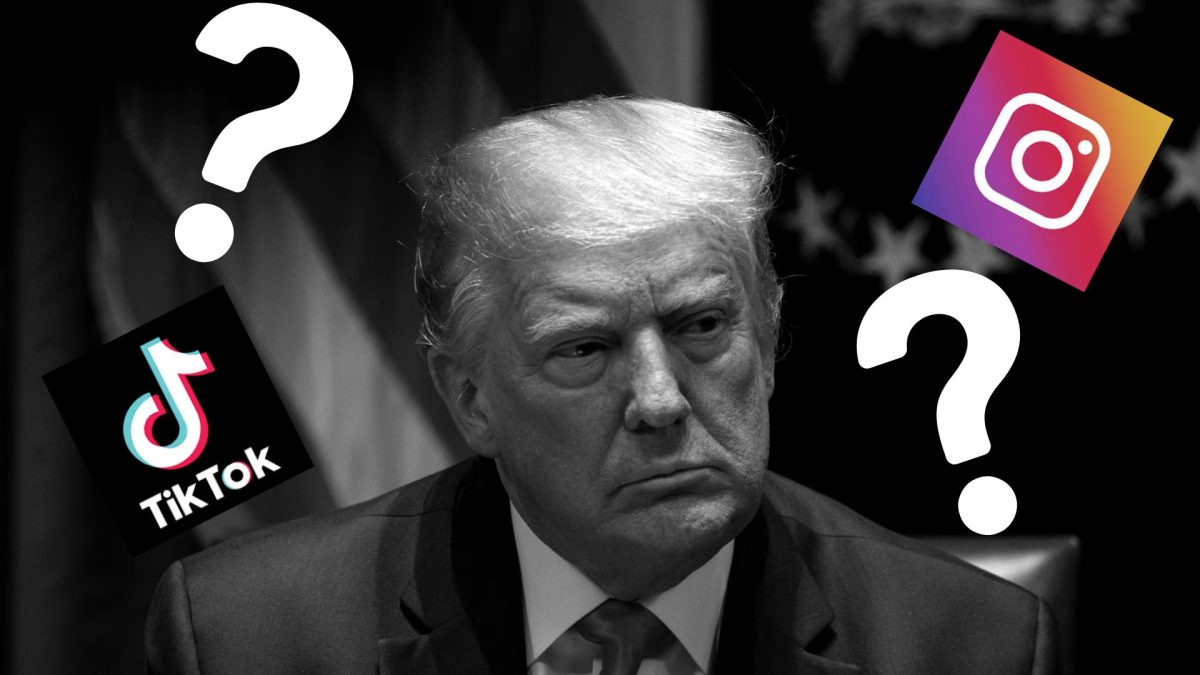The price of cheap comes at the cost of overconsumption
Temu is a digital marketplace that offers a large range of products with astoundingly low price tags that originally launched in the United States in 2022. It is owned by PDD Holdings, a Chinese company.
The app draws in a large user base with an alluring hook: buying items for virtually nothing. Temu advertisements across the internet can be seen with captions and flashy labels claiming that consumers can easily buy typically pricey items such as home necessities for a dollar or under. The appeal of Temu is that this claim is actually true: the items bought will actually be sent to the consumer and the cheap prices aren’t inherently a scam. It’s a legitimate business that delivers on its word.
Liam McFadyen ‘24 said, “I’ve used [Temu] to buy my entire wardrobe. I personally like the alpha wolf galaxy jacket design. I’ve also used [Temu] to buy gifts for my family members. I once bought my step brother an alpha galaxy bed set.”
Temu is able to sell at these immensely cheap prices because they use a “direct-to-consumer” business model. This means that they are able to take manufactured items directly from China and ship it to the consumer without involving any sort of “middleman,” who are typically to blame for why prices expand and swell from the original production cost. Although their products are sold at extremely cheap prices, there are so many sales that they are able to make a lucrative profit off of the app.
Melanie Sanchez ‘24 said, “The items have come broken and poorly built. It took six weeks for my package and when I complained, I never got an answer.”
On top of their flashy advertisements and low prices, Temu also offers enticing incentives to users who recruit other people into using the app. The more people that someone is able to convince to sign up, the more in-app credit a user receives. By using this credit, users are able to get items for practically free. This advertising method is one of the primary reasons that Temu’s popularity quickly exploded across the country. With so many people advertising on social media and referring new users to Temu in exchange for free items, Temu’s user base has increased exponentially. In a sense, it’s a legalized pyramid scheme, profiting off the constant recruitment of new users who then in turn will also recruit other people.
However, the cheapness of the items produces a heavy cost in another category: overconsumption.
Overconsumption describes a state in which a person indulges in consuming more than is necessary for them. For example, purchasing a large quantity of items not because it’s needed but because it’s cheap or on sale. This in turn creates an overwhelmingly large and destructive amount of waste because people aren’t necessarily buying things that are needed but are buying things for the sake of how cheap it is.
The predominant issue with Temu is the low quality and short life of the products that are produced and bought. The low quality, in turn, prompts people to purchase more and more when the items they previously bought from Temu are not holding up to be durable in the long run. Thus, this feeds into an engrossed sense of a “fast” culture: buying and using unsustainable items, then disposing of them quickly after the initial purchase continuing to purchase even more items of fleeting quality simply because it’s cheap and easy.

Irresistible prices paired with growing inflation makes it difficult for consumers to tear away from the incessant want to continuously buy more and more from Temu. This round-the-clock need to continuously buy more would constitute and exacerbate a state of overconsumption and further encourage the company in its practices.
Not to mention, there is an apparent and concerning lack of transparency around Temu’s supply chains with evidence showing that labor behind certain supply chains may involve forced labor of the Uyghur people, a minority Turkic ethnic group who resides in China.
Chairman Mike Gallagher (R-WI) and Ranking Member Raja Krishnamoorthi (D-IL) of the Select Committee on the Chinese Communist Party released a report on June 22, 2023, regarding a forced labor investigation into Temu and Shein, another e-commerce platform that promotes clothing and fashion.
Gallagher stated, “These results are shocking: Temu is doing next to nothing to keep its supply chains free from slave labor. At the same time, Temu and Shein are building empires around the de minimis loophole in our import rules—dodging import taxes and evading scrutiny on the millions of goods they sell to Americans. We need to take a hard look at this loophole that is being abused to tilt the playing field against American companies.”
In the report itself, it is stated, “Temu admitted that it ‘does not expressly prohibit third-party sellers from selling products based on their origin in the Xinjiang Autonomous Region.’” The Xinjiang Uyghur Autonomous Region is where a large section of Uyghur people are being detained in camps and abused by the government.
In the conclusion of the report it is also stated, “American consumers should know that there is an extremely high risk that Temu’s supply chains are contaminated with forced labor.”
This means that buying from Temu would not only ruin the environment and a proper concept of sustainability, but it would also be supporting and adding to the slavery of the Uyghur people.
Temu offers low prices that are tempting, but buyers should know what they are supporting with their money. It is important for those who intend on making purchases on Temu to decide whether the low prices are worth what their money is going to.
















